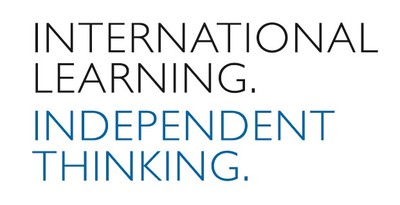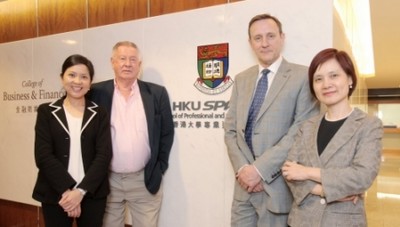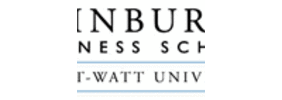HKU SPACE classes add value to distance learning MBA
- Home
- HKU SPACE classes add value to distance learning MBA

HKU SPACE classes add value to distance learning MBA
By SCMP EDITOR| May 30, 2013 (Education Post)
When first considering an MBA, most prospective students look into the pros and cons of taught programmes versus distance learning options. There is, though, another possibility - a programme which combines the two - thereby giving the advantages of flexibility and choice, along with the chance of revision classes, extra tuition and group interaction with fellow students.
The MBA offered by Edinburgh Business School, Heriot-Watt Universityoffers just that combination, which goes a long way to explaining the programme's popularity around the world. Currently, there are close to 11,500 active students in 160 countries, who can study online course material anywhere any time, but can also rely on extensive advice and support which, in Hong Kong, comes via Edinburgh's partnership with HKU SPACE.
Highlight this line and place other template here (or just simply delete this line when no use)
"There are all the benefits of a distance learning MBA, but we also have the facilities, academic staff, and contacts with local business practitioners to enhance learning and help students improve their all-round skill sets," says Dr Josephine Jim, senior programme director for the College of Business and Finance at HKU SPACE. "Our focus is helping in terms of time management, studying core subjects, and preparing for examinations."
This is important since many executives taking the MBA have been working for five or more years and need to re-learn how to study. Others come to the programme with extensive professional experience, but no first degree. However, the structure allows them to complete modules at their preferred speed, progressing from postgraduate certificate to diploma to the full MBA, which comprises seven core modules plus two electives.
"Our courses teach concepts, how to apply them, and critical analysis of different situations," Jim says. "We follow the recommended study pathway, also introducing examination techniques and showing ways to solve specific problems with practical examples."
The classroom setting gives a chance to discuss case studies and share experiences in an environment where debate and comment are more direct dynamic than in an online forum. Class sizes are deliberately small, with around 10 to 15 students, so teachers can inspire critical thinking and, where appropriate, address specific queries about exam questions set in previous years.
Extra motivation
If extra tuition is required, say for an accounting or finance module, locally based tutors with high academic standing will provide individual guidance by phone or email. Tutors specialise in relevant subject areas such as organisational behaviour, economics, and strategic planning.
"There is no time limit to complete the programme, but part of our job is to keep students motivated and on the right track," says Tammy Kwok, assistant programme director at HKU SPACE. "Many aim to finish in two years, but they enrol in and pay for individual modules and can register for the full preparatory course in different subjects or just the exam [revision] course."
In Hong Kong, the programme can be studied in English and Chinese (medium of instruction in Chinese language class can be in Cantonese or Putonghua) and, around the world, versions are also available in other major languages.
For Professor Keith Lumsden, academic director of Edinburgh Business School, choice of language is just one aspect of providing an MBA which is both flexible for learners and responsive to the needs of modern-day executives. Like the core curriculum, range of electives and different modes of learning, it takes due account of what students are now looking for and tailors things accordingly.
Highlight this line and place other template here (or just simply delete this line when no use)
"The audience we are after are mature business men and women who have work experience, but want the MBA so they can operate more efficiently," says Lumsden, a driving force behind the programme's concept, design, and academic rigour.
Early research showed that "live" classroom instruction was not a high priority for this group. Overall, what mattered most was being able to study when, where and how they preferred and having content, case studies and simulations which were directly relevant and an intellectual challenge.
Leading position
As a result, the distance learning format was launched in 1990 and proved a near-instant hit. Within five years, enrolment numbers made it the largest MBA programme in the world and, since then, the expansion of online content and the addition of classroom teaching in key international centres have cemented that position.
"The market doesn't lie," Lumsden says. "The greatest secret of the programme is its flexibility. Students decide what they want and when, while multiple-choice self-testing and profiling tell them how ready they are [for the exams] in each course."
Alick Kitchin, joint head of school at Edinburgh Business School, notes that an insistence on rigorous assessment has contributed to the MBA's international reputation. The partnership in Hong Kong should add to that and help to give a local context for students working in Asia.
"HKU SPACE recognises what we are about," Kitchin says. "Their tutors are enthusiastic about the material and will maintain the emphasis on quality and demonstrable academic rigour."






Joint forum to address the changes and challenges in corporate finance

Preparatory Course for MBA Programme of Edinburgh Business School Hariot-Watt University Article





